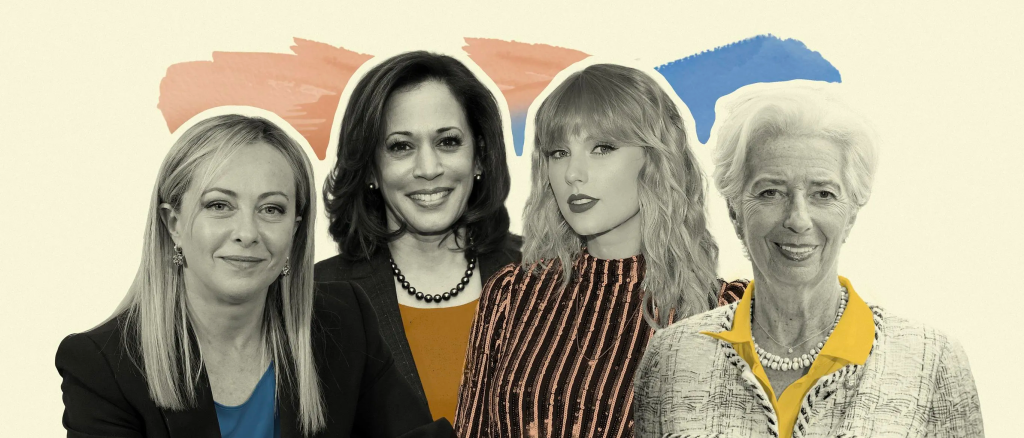From Taylor Swift’s dramatic rise to the precarious nature of political power, the 2023 list reveals a complex picture of women’s influence in a volatile world.

Forbes’ 20th annual list of the World’s 100 Most Powerful Women reveals a complex picture of female power. This year’s list spotlights a dynamic array of leaders from diverse spheres of influence, featuring both groundbreaking newcomers and established figures, all marking significant strides in women’s global impact. But this list, while highlighting women’s advancements, poses critical questions about the state of their power.
Why does a cultural icon like Taylor Swift rank among the top five listees, shoulder-to-shoulder with women leading politically on the world stage? And why does Italy’s Prime Minister, Giorgia Meloni, stand alone as the only woman today helming a G20 economy?
Most notably, Taylor Swift’s dramatic rise from #79 to #5 epitomizes a new archetype of influence, signaling a shift from the traditional political and corporate might, and that far transcends traditional entertainment boundaries. Her economic impact this year is staggering: Swift’s Eras tour alone is reported to have brought in a record-breaking $850 million, and is estimated to have boosted the U.S. economy by over $5 billion. Her innovative business strategies have redefined industry norms.
Full List: The World’s Most Powerful Women 2023
Yet Swift’s most profound impact lies in her ability to sway the cultural and social currents of our time, particularly among a young, predominantly female audience. She symbolizes a new era of power, influencing people and culture independent of any country or company.
Swift’s ascent also highlights a significant gap in the landscape of women’s power – the realm of politics and policy. This year’s top listees, European Commission President Ursula von der Leyen (#1), European Central Bank President Christine Lagarde (#2), U.S. Vice President Kamala Harris (#3), and Prime Minister Giorgia Meloni (#4), exemplify women’s influence in spaces historically dominated by men, and are pivotal in shaping economic policies and legislative frameworks. However, these leaders highlight the exception rather than the rule.
This marked scarcity of women in top political roles sharply contrasts previous years. A decade ago, five women were leading nations within the top 25 global economies, but today, this number has dwindled to just one. Only 13 of the 193 United Nations member states today are led by female heads of government. Despite a positive increase in women’s representation across various levels of political and policy spheres, the decline in the number of women holding top political roles is particularly notable during this time of global crisis.
This decline is further complicated by the precarious nature of political power: on this year’s list, five key leaders, including Ursula von der Leyen and Kamala Harris, face reelection challenges, while others like Tsai Ing-wen (#30) and Zuzana Čaputová (#80) are nearing the end of their terms. What’s more, Jacinda Ardern of New Zealand, Sanna Marin of Finland, and Nicola Sturgeon of Scotland all departed their positions earlier this year.
With the world embroiled in crises from every angle, the critical need for more women at the highest levels of policymaking transcends the goal of equity; it’s about harnessing a breadth of perspectives and skills essential to addressing the complex challenges of our time. At this pivotal moment in history, when the call for innovative leadership has never been louder, the narrative of our times could be markedly different if shaped by the inclusive, transformative leadership that women offer.
U.N. Ambassador to the United Nations Linda Thomas-Greenfield (#75) echoed this sentiment in an interview with me in September, stressing that compassion and understanding are essential to effective diplomacy. “You have to listen to people, whether you agree or disagree with them or not,” Thomas-Greenfield told Forbes. “You also have to be kind. Kindness is the most effective weapon that you can have.”
Female power today stands at a pivotal crossroads characterized by stark contrast and unrealized promise. The key to progress lies in a balance of both hard and soft power, unlocking the full potential of women’s leadership. This need has never been more evident, nor more urgent. It is a need that we must heed to create a more resilient, just world.
This article was first published on forbes.com and all figures are in USD.


